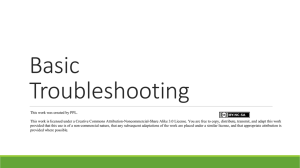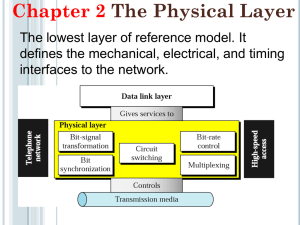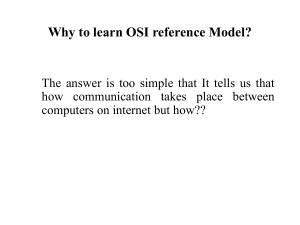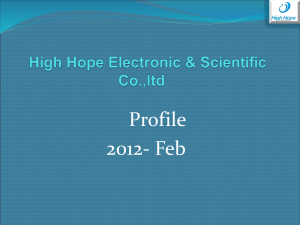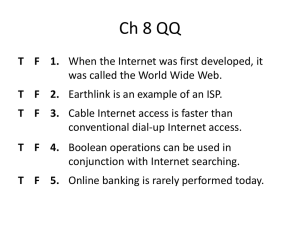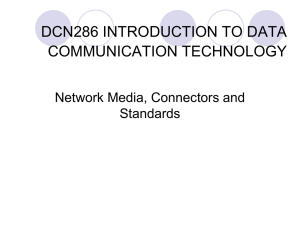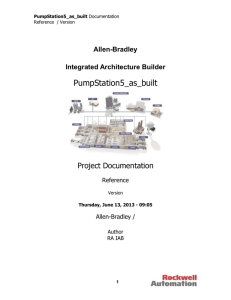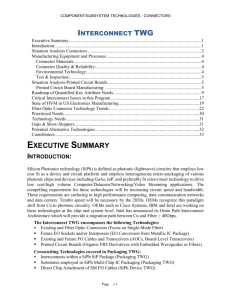Connector
advertisement
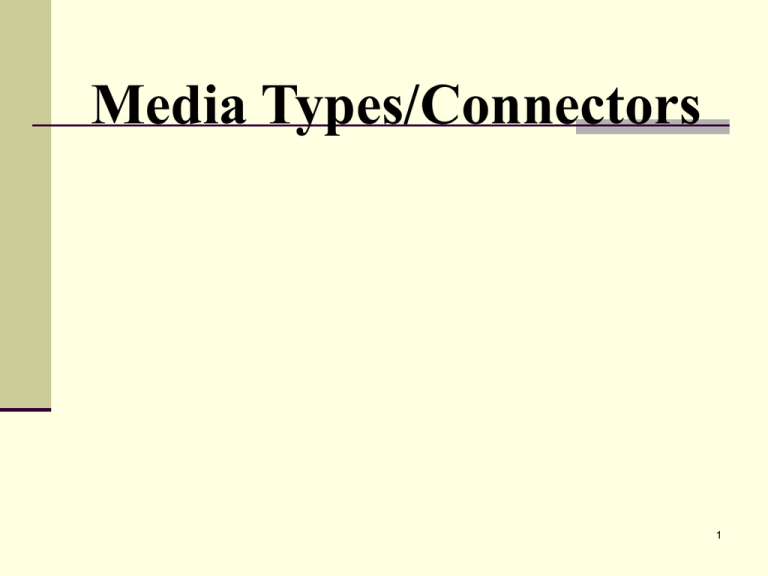
Media Types/Connectors 1 Twin lead Mono AUDIO VIDEO Vinyl Cover Copper Conductor Spade Connector • Spade Connector • Low Capacity - 6 Channels • Separate signals - Video and Audio 2 Coaxial Cable • Characteristics •High Capacity - 100 + channels •Carries Video and Audio signal together •This cable is used to send the WIRO signal to all the Iroquois classrooms. 3 Coaxial Cable - Connectors F -Connector • Standard in Cable Industry F -Coupler • Connects two coaxial plug ends BNC • Used to adapt composite and coaxial • Locking mechanism 4 RCA Cable • Wire carries only one signal • Video, Audio Left or Audio Right • Higher quality picture and audio than coaxial cables White Yellow Red 5 S -Video Information • Separate carriers of video signal • Luminance (Y) -black & white, brightness • Chrominance (C) - color • Separation of video signal provides better picture resolution than RCA and Coaxial Normal Luminance 6 Chrominance S-Video S-Connector’s 7 S-Cable 8 Progressive Scan Offers better video quality than S-Video Brakes video signal up into 3 categories QuickTime™ and a TIFF (Uncompressed) decompressor are needed to see this picture. S-Video 9 Progressive Scan HDMI (HDMI)High-Definition Multimedia Interface The Very Best video quality on one single cable QuickTime™ and a TIFF (Uncompressed) decompressor are needed to see this picture. 10 Audio Connector XLR Connector (balanced cable) Carries stereo audio signal from microphones Used to connect Microphones to the Soundboard 11 Balanced Cable Audio Right Ground Shielding Foil Audio Left XLR Connector 12 Audio Connectors 1/4” and 1/8” Plug • Provides either Mono or Stereo sound • Use for: headphones 1/8” Plug 1/4” Plug 13 Audio Connectors (Stereo vs. Mono) Two rings = Stereo two speakers One ring = Mono one speaker 14 Firewire Cable Power •Used to connect digital camera to computer •Connector name: IEEE 1394 •Institute for Electrical and Electronic Engineers •High speed digital connector •Transfer rate of 400 mbps Data 15 Fiber Optics Cable Cladding Advantage and Disadvantage •Provides HIGH QUALITY Sound •Less Susceptible to interference •Less Durable than wire/cable Connector: Core Buffer coating • Mini BNC Characteristics: Core - Thin glass center of the fiber where the light travels Cladding - Outer optical material surrounding the core that reflects the light back into the core Buffer coating - Plastic coating that protects the fiber from damage and 16 moisture Fastening Method (Crimping) Used to attach F-connectors to coaxial cables 17 Fastening Method (Soldering) Soldering a method of joining metals using fusible alloys, usually tin and lead, having melting points under 700 degrees Fahrenheit Used to attach: RCA, S-Video, XLR connectors Soldering Iron Fusible alloy Soldering Iron 18 Fastening Method (Fusing) Used to bond two pieces of Fiber Optic cable It melts the end of two separate pieces of glass tubing to form one continuous piece of glass tubing. Fiber Optic Cable Fiber Optic Cable 19 Attenuation Attenuation-Loss/weakening of a signal •Heat/Climate •Connection lost •Length/distance traveled 20 Meter Usage • Continuity:1 = 100% Resistance Bad • Continuity: 0 = No Resistance Good Resistance is measured in Ohms (Ώ) 21
